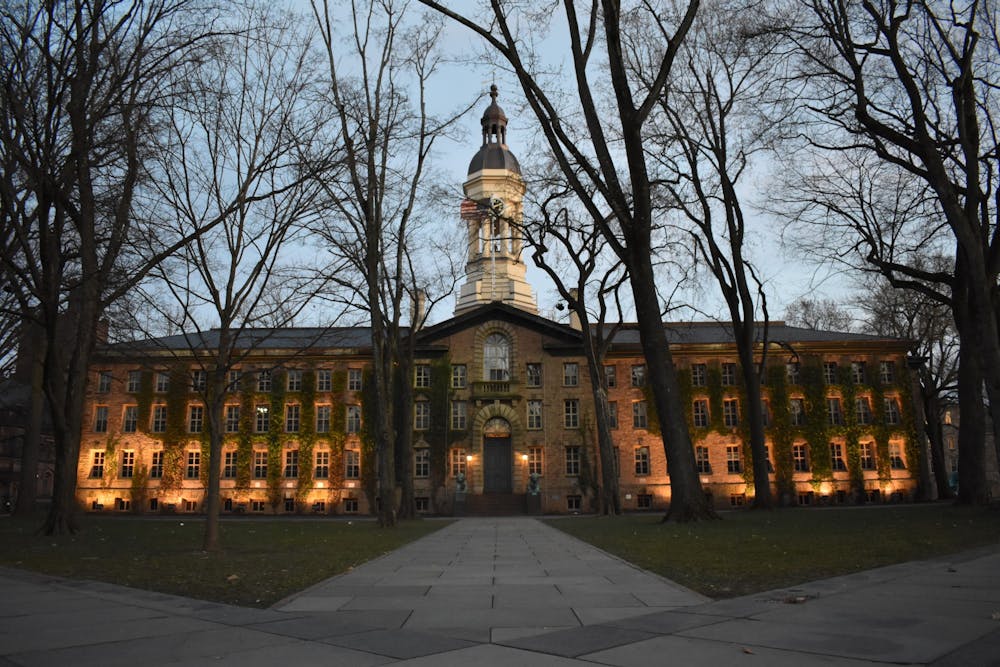In a recent article in The New York Post, Scott Newman ’21 expressed his displeasure with his experiences at Princeton, particularly what he regarded as an atmosphere of careerism that dominated the school. These criticisms served as a convenient segue into promoting his new 90-page memoir, “The Night Before The Morning After,” printed by the “hybrid publisher” New Degree Press.
The article, as well as some of the contents of the book, generated considerable backlash from students for its misrepresentation of campus culture and its decadent tone. Rightly so. The article and the book are failed attempts at literary prowess, turning instead to be incoherent, hedonistic narratives boastful of wealth, excess, and recklessness. But the biggest sin of Newman’s book is masquerading as a critique of a problematic system, while in fact being the gloating narrative of one who perpetuates it and benefits from it.
Newman points out several legitimate shortcomings of our University life, such as the fact that the wealthy and privileged can “game” the admission process, and that there is a pervasive pressure to pursue careers for the sake of wealth and power. Nevertheless, he does nothing to substantially address these issues. Instead, Newman goes to baffling lengths to assert his individuality and implied intellectual superiority over his peers.
Using prose that leaves much to be desired, he romanticizes his life of leisure, travel, and excess, presenting it as some sort of wizening experience — with a rather odd and misogynistic emphasis on his sexual encounters with women around the globe. This is Newman’s solution for the ills of any student who is affected by Princeton’s sellout culture: throw everything aside and embark on an expensive escapade around the world. And, by the way, read some Hegel and Kierkegaard while you are at it — truly, everything would be different if everyone read them!
Ultimately, it seems that literature and the works of great authors are of immense value to Newman. Throughout his book, he seems desperate to emulate the narrative of F. Scott Fitzgerald, famous for his novels dealing with decadent American elites. Newman seems more concerned with elevating his persona to the level of Gatsby than understanding the critiques his literary idols actually make. Ironically, he falls squarely into what Fitzgerald wants to expose as corrupting American society, the empty decadence of the pursuits of a hedonistic elite.
Newman seems to rejoice in being identified with this demographic, his writing motivated not by a desire for genuine commentary or critique, but rather by his vain and selfish aspirations for a romanticized life of wealth.
Ultimately, he is doing nothing differently from the rest of us; while in the midst of reading Hegel’s “Phenomenology of Spirit,” it seems Newman missed the fact that indeed most of us are not on campus. It is just that he accuses us of aspiring to a well-off station in life that would afford us a casual trip to Australia, whereas he already occupies this station. This is the classic case of a man who “doth protest too much.” This is not to say, though, that he was necessarily destined to fail in his project; the issue is that he never committed himself to success. He doesn’t need it, and he doesn’t want it enough. How could he have done better?
Newman suggests that he would rather not set foot on Princeton's campus again; indeed he regrets attending in the first place. Too good for finance and consulting, Newman would prefer to live the life of the intellectual recluse, unwilling to actually intervene in anything resembling a positive fashion. He would rather sit quietly and read, which, given his disposition, is likely so much the better for the vast majority of us, who cannot afford to limit ourselves to just that.

At the end of the day, Newman offers a change of self-presentation and geography, not of priorities. He forgot, it seems, that Princeton has plenty of bookworms as well; but as much as we enjoy reading Hegel, we don’t feel the need, or even have the means, to venture to Australia and do the same thing, all the while pretending it is different, novel, even subversive of elitism.
The elitism identified by Newman is all too prevalent. But he is not the antidote; he is its logical extension. The only way to differentiate oneself from Princeton’s elitism is to actually help the world and topple people like Newman from their thrones of self-styled cultural supremacy. And it is this consciousness, rather than the subpar model of a Gatsby, that should animate any practice that seeks not only to overcome the standard Princeton elitism, but the self-humiliating pretensions of Newman himself. These, we should have predicted, are the ultimate outcome of his accumulated wealth and pampered upbringing. Maybe if he had read Erasmus’ “In Praise of Folly” he would realize that throwing around authors’ names does not, in fact, make you enlightened.
Newman has offered us false profundity masquerading as introspection, but this gives us an opportunity to undertake some introspection and reflection of our own. It is true enough that Princeton trains the next cadre of well-paid and high-powered ruling class enforcers. Nevertheless, perhaps the worst way of undermining this dynamic is this fakery. This is but a displacement of authentic consciousness by a characteristically cheap appeal to a version of individualism utterly inaccessible to most people, even here at Princeton.
Braden Flax is a senior from Merrick, N.Y. He can be reached at bflax@princeton.edu.

Juan José López Haddad is a junior in the School of Public and International Affairs from Caracas, Venezuela. He can be reached at jhaddad@princeton.edu.








